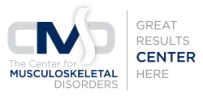PRP Therapy in NY & NJ
Platelet Rich Plasma (PRP) therapy has become a very popular method of treatment to enhance the healing process for musculoskeletal disorders and injuries, especially within the area of sports medicine. Over the years, the public awareness of PRP therapy has grown dramatically as a number of injuried professional athletes have used it to speed up their recovery process.
The fact that PRP therapy uses the body’s own natural components to alleviate pain and enhance the healing process makes it a very appealing method to treat pain and enhance healing.
A minimally invasive procedure, PRP therapy may be used as a conservative treatment to avoid surgery or to avoid the need for anti-inflammatory medications, cortisone injections or other medications.
Platelet Rich Plasma injections may also be used after surgery in some cases to improve the healing process.
What Is PRP Therapy?
Platelet-Rich Plasma (PRP) is a regenerative, non-surgical treatment utilizing a high concentration of platelets from the patient own blood to promote cell regeneration.
During PRP Therapy, blood is drawn from a patient and placed in a centrifuge. The centrifuge creates a concentration of a patient’s own platelets, which is then injected into the area being treated. Ultrasound technology is often used to visually guide the injection to the injured area.
The entire process typically takes about an hour. Depending on a patient’s condition and their response, it may take more than one course of injections to receive the full benefit of the therapy.
PRP Injury Treatment
PRP injection therapy is commonly used as a non-surgical treatment for tendon injuries and disorders. It may also be used to treat acute ligament injuries, reducing pain improving function.
Examples of conditions that may benefit from PRP therapy include but are not limited to:
- Achilles Tendinitis
- Gluteal Tendinosis
- Golfer’s Elbow
- Jumper’s Knee
- Ligament Injuries
- Knee Osteoarthritis
- Muscle Strains
- Patellar Tendonitis
- Plantar Fasciitis
- Pulled Hamstring
- Rotator Cuff Injuries
- Tendon Injuries
- Tennis Elbow
Am I A Candidate for PRP Therapy?
PRP therapy is not for everybody. Patient’s with anemia, cancer or a low platelet count can’t get PRP injections.
Patients suffering from a severe disorder or injury are probably not going to benefit from PRP therapy.
Patients receiving PRP therapy need to make their doctor aware of any medications they are currently taking, including over the counter medications. A doctor will advise you on how to prepare for the injections.
Side effects of PRP therapy are fairly limited since the injections are created from the patient’s own blood. Possible side effects as the result of the injections can include swelling and mild pain.
Like any method of treatment, results vary from patient to patient.
PRP Therapy At The CMD
If you are suffering from a mild to moderate injury or disorder, you may be a candidate for Platelet-Rich Plasma therapy, BMAC Stem Cell Therapy or other conservative forms of treatments.
Schedule an appointment with an orthopedic pain management specialist to have your condition accurately diagnoses and evaluated. Our doctors will work with you to determine the best treatment methods available to address your condition.
Side effects of PRP therapy are fairly limited since the injections are created from the patient’s own blood. Possible side effects as the result of the injections can include swelling and mild pain.
Like any method of treatment, results vary from patient to patient.
